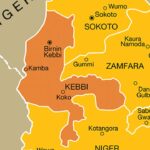Impacts of climate change have plunged millions of Nigerians in agriculture, the country’s major employer of labour, into untold hardship and threatened food security as many fail to take mitigation measures such as adequate insurance cover. While climate-related crises will linger for decades, taking insurance policy can help cushion their far-reaching effects on farmers.
The distress in Julde Atiku’s face was palpable. Desolate and nervous, he intermittently glanced at the sorry sight of his flooded surroundings. The 74-year-old rice farmer in Ardo Kola Local Government Area of Taraba State was among hundreds of smallholders in the agrarian community whose houses and farmlands were ravaged by floods in the last rainy season.
For Atiku, a N4m investment raised through a loan and sale of landed property has gone down the drain. He had hoped to harvest at least 700 bags of the crop, but as the harvest period drew nearer, a flood swept away the rice paddy.
He said, “I took a N1.5m loan from the bank, but it was not enough. I then sold one of my houses for N2.5m. I invested everything in rice farming. I was going to harvest at least 700 bags of rice but couldn’t get a grain in the end.”
- BREAKING: Bandits burn Catholic priest alive in Niger State
- Despite being defrauded, I will return to Nigeria with my family – American
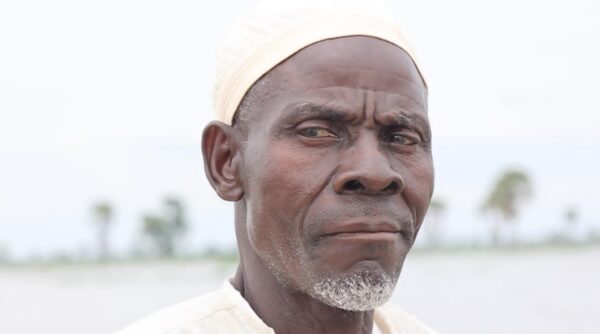
In the neighbouring Tao community, Adamu Inuwa and his co-farmers suffered worse fates. Each of them had planted 30 to 100 bags of rice only for the flood to wash the crop away overnight.
“We are pleading in the name of God for the government to see to our plight and help us,” Inuwa appealed.
In Mutum Biyu, Gassol LGA, Taraba State, Mohammed Haruna was among many farmers who took millions of naira in loans to cultivate rice. They also lost everything to flooding last year.
“It is normal for farmers to take loans from different financial institutions and invest in farming activities. I obtained about N8m loan to farm, but floods destroyed everything. This is the first time I would experience such loss as a result of flood. For now, I and other farmers are confused. We don’t know what to do,” he lamented.
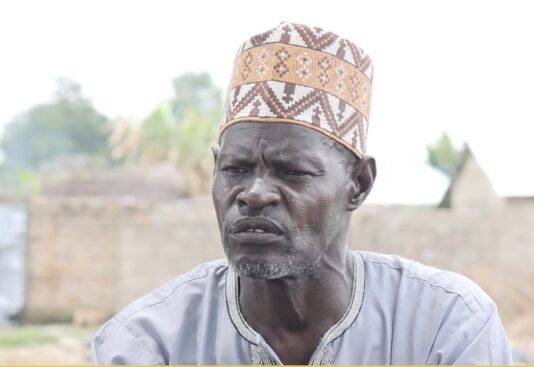
Ordinarily, with appropriate insurance cover, the farmers should not have found themselves in such a precarious situation, whereby they have to wait for the government’s intervention which may not materialise, may be delayed or grossly fall short of their expectations if eventually rendered.
Unfortunately, none of them insured their farms against risks such as flood and consequently have been plunged into devastating losses. Majority of the locals depend solely on agriculture to pay bills.
The 2022 flooding was described as the worst in Nigeria since 2012, destroying over 500,000 hectares belonging to thousands of smallholder and commercial farmers, said Kabiru Ibrahim, the National President of the All Farmers Association of Nigeria (AFAN).
This is aside from the 600 persons killed and about 1.4 million people displaced, according to the National Emergency Management Agency (NEMA).
Most of these farmers obtained loans from the Anchor Borrower Programme (ABP) of the Central Bank of Nigeria (CBN), commercial banks and microfinance banks with the expectation to repay after harvest.
Climate change
The high intensity of flooding was attributed to the adverse effects of global warming – a phenomenon resulting in unpredictable weather conditions that necessitate adaptation and mitigation methods.
In October, 2022, the Minister of Water Resources, Suleiman Adamu, said it would take 30 years of consistent investment to control the menace of flooding in Nigeria. This evidently foretells more perilous natural disasters ahead and the need for insurance cover to cushion the effects of losses.
Sadly, agriculture insurance penetration is very low in Nigeria despite that it (agriculture) contributes significantly to the country’s Gross Domestic Product (GDP).
According to the National Bureau of Statistics (NBS), the sector contributed N18.7trn – representing 25.8 per cent – to Nigeria’s real GDP of N72.39trn in 2021. It is also the largest employer, providing jobs for over 36 per cent of the over 200 million population, mostly people in the rural areas.
A 2018 report by the United States’ Global Hunger and Food Security Initiative revealed that agriculture insurance uptake in Nigeria was significantly low at three per cent.
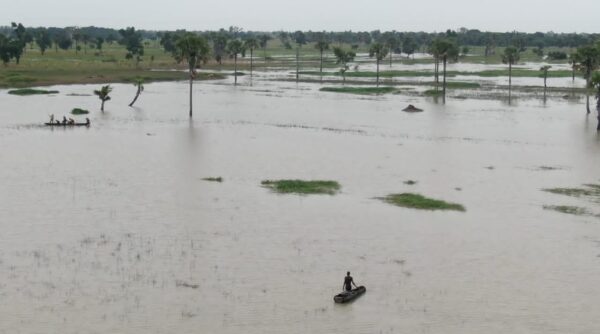
At a workshop organised in Abuja in April, 2021, underwriters in agriculture insurance stated that the percentage of smallholder farmers who access insurance products was less than five per cent, noting that such farmers produced over 98 per cent of food consumed across the country.
The Head, Agric Insurance, AIICO Insurance Plc, Leonard Okereafor, warned that poor access to insurance by smallholders was a threat to Nigeria’s food security.
At the workshop, the Director, Policy and Regulation, National Insurance Commission (NAICOM), Leo Akah, also decried the level of ignorance in agriculture insurance among farmers.
During the Agriculture Insurance Stakeholders Conference held in October, 2022, the Agric Manager, Africa Reinsurance Corporation (Africa Re), Mr Isaac Magina, revealed that the total agriculture insurance market value in Africa in 2021 stood at $390m, shooting up its total market value to $45.5bn.
While these figures may look impressive, it is a far cry from the agric insurance potential, particularly in Nigeria. In his opening remarks at the conference, the Deputy Managing Director of Africa Re, Ken Aghoghovbia, said the market had the potential to generate at least $600m agriculture insurance premium yearly in Nigeria as against the $10m reported in 2021.
More tales of woes
Innocent Aluu was on the cusp of raking in over N30m from his poultry in Bayelsa State when flood-related crises struck. Accessing quality feeds and medications for his 10,000 birds became difficult as many parts of the state were flooded. The birds were also hit by water-borne infections and started dying.
Aluu said, “For the birds, the daily losses increased from 20 to 100 birds; then we recorded 200 deaths. By the time we checked, we had lost 9,400 birds. For the 600 birds that survived, I had to call people to buy them for N500 each. These were birds that I should have sold for N3,000 each (N30m for 10,000 birds).
“The plant that was meant for the hatchery was destroyed by the floods. We also have fish ponds with fishes at the grow-out stage. When the floods came, the fishes began to die. Each day we went to check the ponds, we found fishes floating. We lost all of them,” he recalled painfully.
Aluu estimated his losses, including destruction to assets, at N75m, and all his 17 workers lost their jobs.
He further said, “I feel hopeless. There is a lot of maintenance and repairs to do. If I put all these into consideration, it means I would need a huge amount of money to start again. Right now, I am pleading with the government to please come to our aid.”
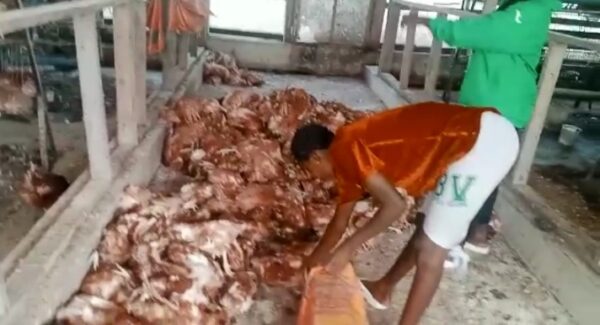
Flooding also wreaked havoc on fish farms in Odogbolu LGA of Ogun State. About 200 fish farmers lost over N500m investments, according to the Chairman of the Fish Farmers Association (FFA), Lazarus Okole.
He added that except the federal and the state governments came to their rescue, many farmers might die from the shock of the huge losses.
As pathetic as the situations of the farmers are, the life-threatening shock is pretty avoidable with adequate insurance which they did not consider crucial all along.
“I didn’t do comprehensive insurance. I only insured my workers and the birds against theft; not natural disaster,” Aluu noted.
Safiya Yahaya, the Chairperson of Small Scale Women Farmers Organisation in Nigeria (SSWFON), Kogi State chapter, who lost six hectares of rice and cassava worth N1.6m to flooding, admitted that many farmers were indifferent to insurance.
She said, “All the reports I got from farmers across the state are terrible. Most of us took loans, including from microfinance banks, to farm. We don’t know how to repay the loans now. About 600 farmers were affected altogether and we have not received help from the government. We are in a very difficult situation now.
“It is not easy for us to feed our families. We didn’t expect the floods, so none of my members insured their farms. Moving forward, we will consider insurance against this kind of disaster. We will appreciate it if the insurance company can educate us about how we can insure our farms against flood.”
Indeed, the plight of thousands of affected farmers is better imagined, particularly in the face of worsening economic hardship in the country. Already, Nigeria is battling galloping inflation and multidimensional poverty affecting 133 million people – more than half of the population.
These sorry conditions can only be compounded by the ordeal of farmers and other business owners who lost all their fortunes to the natural disaster.
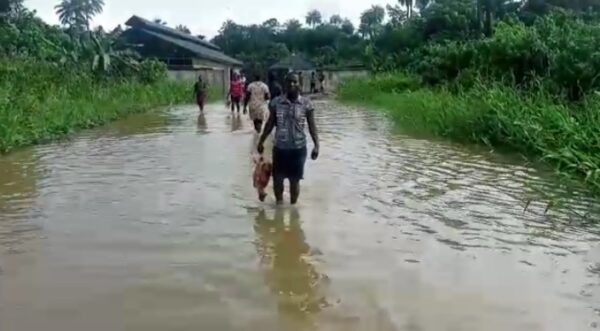
Saving grace
Perhaps, the Director General of the Nigerian Agribusiness Group (NABG), Dr Manzo Maigari, is one of the few farmers who would easily get back on their feet after the humongous losses caused by flooding simply because he insured his expansive farms.
The former Kaduna State Commissioner for Agriculture and Rural Development told Daily Trust on Sunday that insurance was a major step farmers must take to mitigate the effects of climate change.
He said, “I lost 500 hectares of rice to flooding in Benue State. When you want to quantify that, it is over N2bn. We are sensitising the people. They must see agriculture as business. So, people must naturally engage and involve insurance companies in their businesses as the starting point.”

However, most farmers, like every other average Nigerian, are reluctant in buying insurance products either because of sheer wish against calamity, low awareness or lack of trust which make them think they may not get compensation (on time) when losses arise. Some also see premium payment as a waste of money in the event that they don’t suffer losses.
While default in compensation payment could be true in some cases, it is not as rampant as many believe, as evidence of paid compensations abound.
For instance, a document sighted by our correspondent revealed that the Nigerian Agricultural Insurance Corporation (NAIC) in five years paid a total claim of N801m to 2,059 crop farmers and 910 livestock farmers who insured their investments.
Going by the act that established NAIC, agriculture insurance scheme is mandatory on all agricultural investments funded from public funds including loans disbursed by developmental banks, deposit money banks (commercial banks), micro finance banks and other financial institutions.
However, compliance with the act is very low even though NAIC offers premiums at 60 per cent discount to smallholder farmers.
A source close to the CBN, which provides loans to farmers under ABP, told Daily Trust on Sunday that most of the farmers that got loans from commercial banks did not care to secure insurance policy for the facility.
“Many people are very much aware of the cultural and to some extent religious sensitivity to bank loans and insurance. Many people in sections of the North believe that paying interest on loans is not even acceptable. Others believe they cannot secure insurance for anything,” the source said.
Such a lukewarm attitude is partly responsible for why the CBN has yet to recover a large chunk of loans lent to farmers thereby gradually crippling the ABP, the official added.
Figures at the beginning of the wet season in 2022 showed that the apex bank had expended over N1 trillion to over 4.8 million farmers across the country, but only recovered N400 billion.
Matching insurance covers with climate risks
Agriculture is central not only to Nigeria, but Africa as a whole. About 60 per cent of Africa’s population are engaged in the sector and it contributes 16 per cent to the continent’s GDP.
Worryingly, climate change crises such as flooding, extreme heat and drought pose significant risks to agricultural production and food security across the continent and even globally; hence, the need for insurance covers to mitigate the impact on both the customers and the underwriters.
“The climate change does not only affect the customers, it actually affects the insurance companies too. So there must be a holistic approach to it,” said the Executive Director, Technical Operations, Coronation Life Insurance Ltd, Adebowale Adesona.
Adesona noted that insurance companies are mostly used to insuring risks they understand, stressing the need to invest in gathering quality data on climate-related risks so they can design appropriate products.
He said, “Climate change is evolving and people are still trying to understand the impact and build models around it. So many insurance companies, not just only in Nigeria but across the world, are trying to shy away from developing products around it because they don’t understand the pattern.
“Developing the right products around climate change involves bringing together the key stakeholders in the industry. For instance, brokers will be helpful in the advisory capacity in terms of speaking to customers and understanding them. Based on what they gather, they can synergise with insurance companies to cover these effects of climate change. Climate modelers can also model the impact to be developed into products.”

A study by Coronation Assurance Ltd titled: “The Role of Insurance in Mitigating the Impact of Climate Change in Africa”, disclosed that a small portion of Africa’s potential climate risk is currently underwritten.
The article reads in part: “For example, only seven per cent of the $200bn in damages caused by Cyclone Idai which struck Mozambique, Malawi and Zimbabwe in 2019 was covered by insurance. Unless more is done to increase levels of risk underwriting, Africa will not build the domestic resilience to manage the increasingly severe weather events predicted to be the future norm.”
Adesona further stated that reinsurance and NAICOM had major roles to play in providing capacity for insurable risks hinged on climate change.
“For instance, flooding affected a lot of Nigerians, but if there is a reinsurance company outside Nigeria that partners with Nigerian insurance firms, it will be easier to manage the losses. Overall, the regulator’s (NAICOM) body language to climate change will determine the seriousness of this synergy. The moment the regulator starts talking about climate change, every player will start to think about how to develop products and make their business green.
“NAICOM needs to provide guidelines and begin conversations around climate change. They need to provide guidelines on doing things that are environment-friendly and engendering collaboration across the market for us to develop products that will meet the demands of climate change,” he added.
Adesona, a former director, Actuarial and Insurance Management Services, PwC Nigeria, cited parametric insurance as an initiative that can be adopted. The scheme insures a policyholder against the occurrence of a specific event by paying a certain amount as compensation based on the magnitude of the event, as opposed to the magnitude of the losses.
He said, “With climate change, we need to be talking about parametric insurance whereby claims are triggered when a certain parameter occurs. For instance, the insurer can say when the temperature reaches 30 degree celsius or when the rain falls at a certain level, the claim is triggered and not necessarily when the loss occurs. This is particularly good for farmers to protect them from flooding and drought.
“There are existing products but we need to do a lot of innovations in terms of being able to take in the peculiarities of climate change effects in designing products.
“Also, most of the existing products have a one-year gap. Climate change has long-term effects on business and we need to think beyond the one-year period.
“Apart from providing covers, it will be good for insurance companies and other players to educate farmers on how to mitigate the impact of climate change.”
In an interview with our correspondent, the Chief Executive Officer of FBS Reinsurance (FBS RE) Limited, Fola Daniel, said while modeling products after climate change was important, the existing ones should be maximised.
He said, “There are policies that take care of flooding and drought, but you can only get succour under these policies if you have an insurance cover. Unfortunately, most people do not. Agric insurance for instance, covers drought, flood and fire, among others. Every fire policy can be extended to cover flooding. There are policies that cover climatic conditions.
“The problem here is awareness. Are people ready to take insurance cover? In Port Harcourt for instance, people are more aware compared to Jigawa. People whose houses were swept away by water will definitely get their claim. So it is about people being aware and being ready not to be penny wise and pound foolish. A lot of people still believe that if you pay a premium and there is no loss, the insurance company will divert your money, so they don’t insure.”

Bridging the lapses
Trust, low awareness cultural and religious beliefs and more are salient issues that must be addressed to increase insurance uptake in agriculture and other sectors.
An insurance management professor and Associate of the Council of Registered Insurance Brokers, Christian Nwite, maintained that insurance products were very difficult to sell, urging the stakeholders to be strategic.
He said, “It is based on promise and people may not be easily convinced.
“Another issue is poverty. The awareness is still low and the government is not encouraging. There are agric insurance policies that the government pays 60 per cent of the total premium. They have offices in most states but a lot of farmers are not sensitised to it.”
Nwite said if the government made insurance against flood and other climate-related losses compulsory like marine, motor and aviation insurance, more people would buy into it.
At a webinar in November, 2022, tagged: “Importance of Insurance for SMEs”, a former Head, Small and Medium Enterprises, Allianz Nigeria Plc, Louis Alozie, pointed out that insurance policies should be flexible, seamless and more transparent.
He said, “As operators, what have you done to ensure that your distribution channel is smooth? When it comes to policy wording, what have the operators done? Do they use simple and concise ways of framing the policies so that the customers can understand it?
“The customers need to understand what they are buying, what it covers and what it doesn’t. This is what happens abroad. There, the policy is made flexible such that customers can pay monthly. We are beginning to see some of these innovations in Nigeria but we are not there yet. So, we need to ensure that a common man appreciates insurance.”
Daniel also urged that rather than paying more attention to giving aids to victims of disasters, the government at all levels should support awareness campaigns of insurance companies.
He said, “They should sensitise Nigerians to adopt insurance mechanisms as a way of managing risks. Government owns radio and TV stations to achieve this. When there is a disaster, the government bears the brunt by giving succour to the populace. But if the government is part of the awareness campaign and sensitises Nigerians to the need to take insurance, the money given to people when there is a disaster can be channeled towards other developmental programmes.”
NAICOM’s Director, Policy and Regulation, Leonard Akah, corroborated Daniel’s account when he admitted that the government needed to put in more funding in the agriculture insurance sector so as to ensure its efficiency in Nigeria.
AFAN National President, Kabir Ibrahim, said the association was considering fleet insurance to encourage more farmers to insure their farms.
He said, “We are encouraging every farmer to insure what they have. Majority of farmers don’t have insurance. We are talking with NAIC about having fleet insurance so that every farmer will pay a token as premium to insure their farms. As such, we will not have to wait for support from the government (whenever losses occur) which is certainly not enough.”
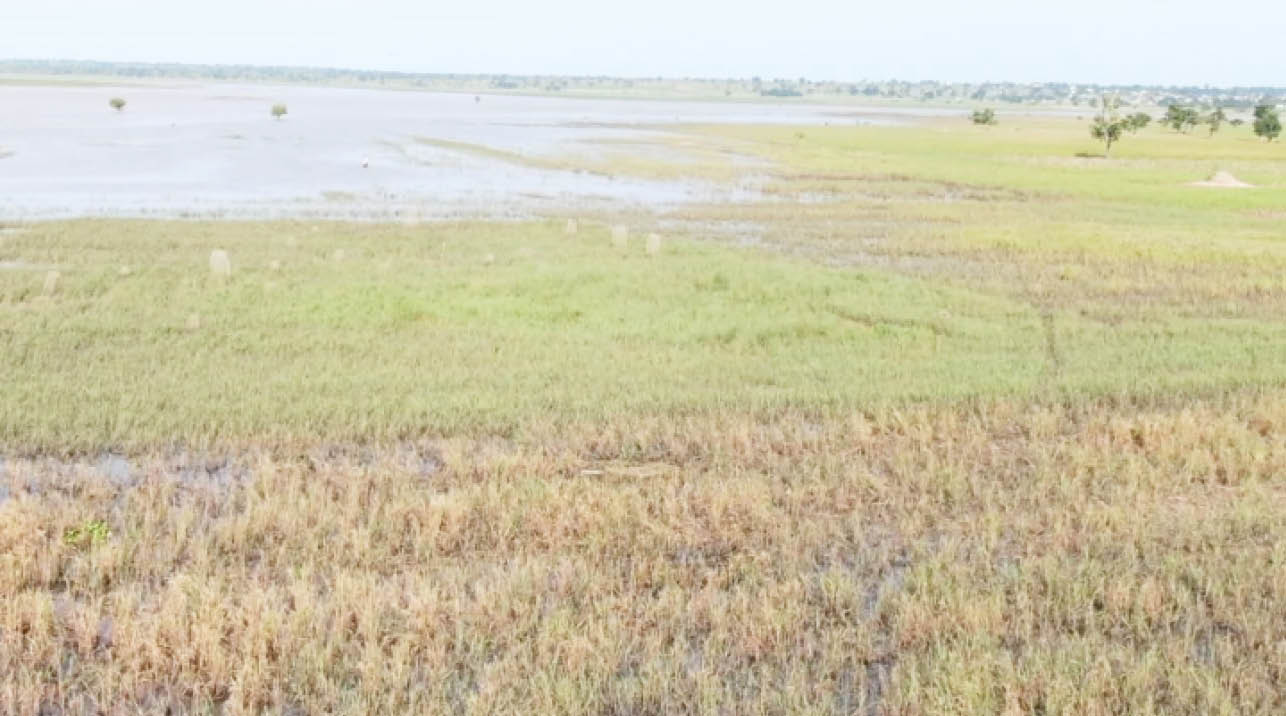
 Join Daily Trust WhatsApp Community For Quick Access To News and Happenings Around You.
Join Daily Trust WhatsApp Community For Quick Access To News and Happenings Around You.


